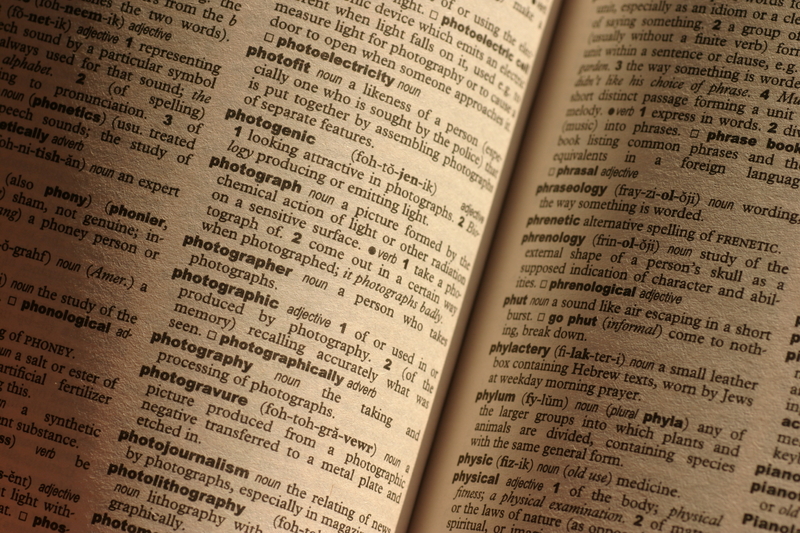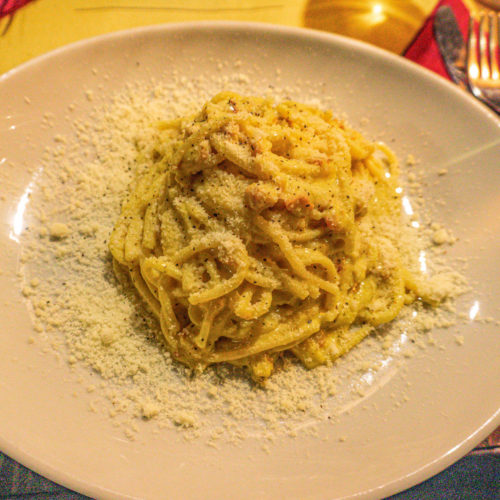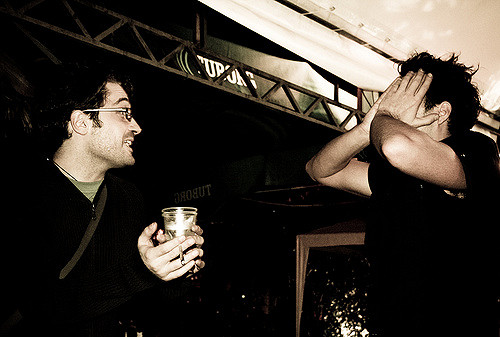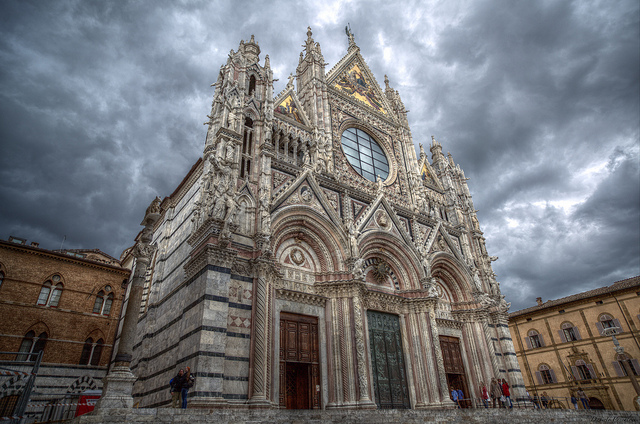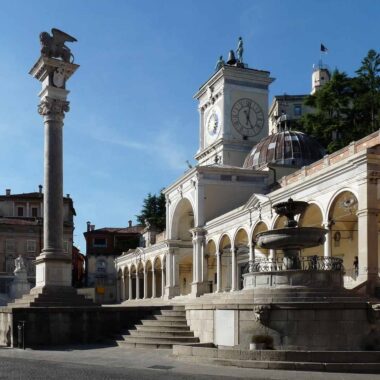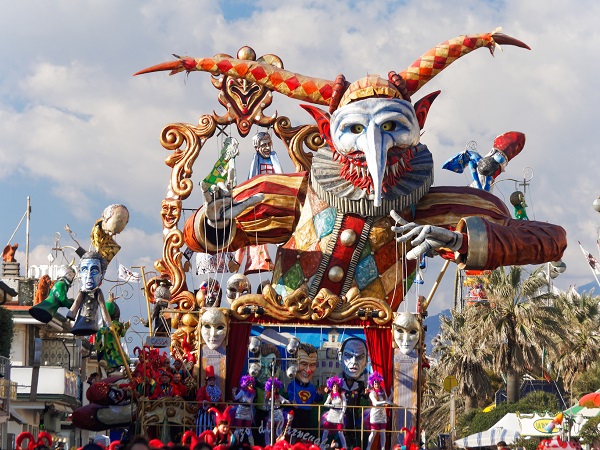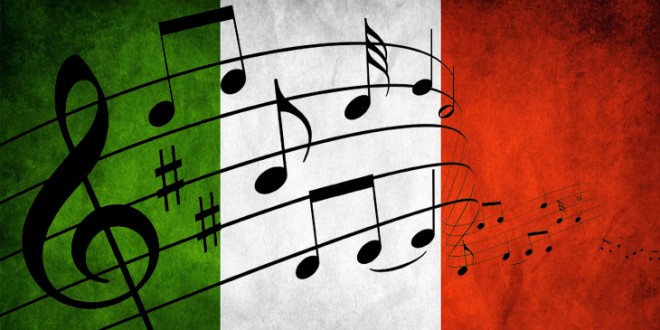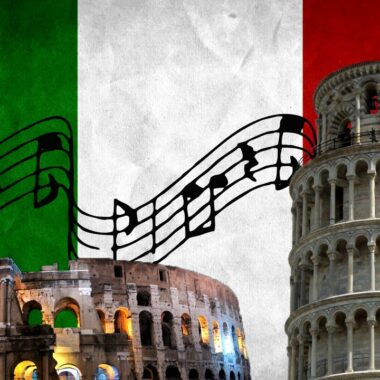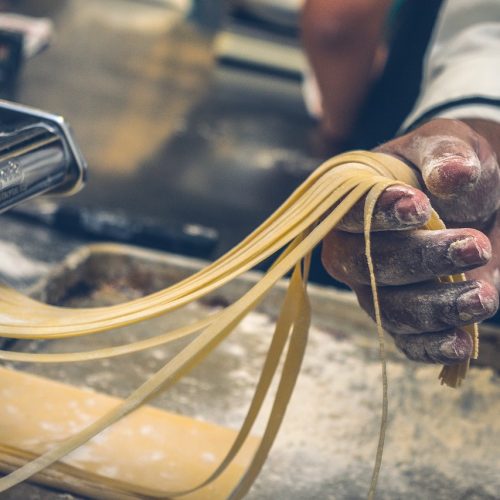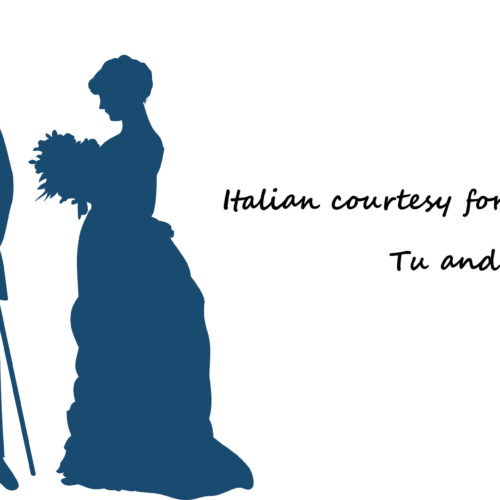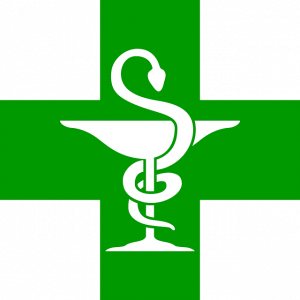The name or (substantive) sostantivo is the variable part of the speech that indicates a person, a thing, or animal.So what’s a name in Italian grammar?
Gender of the Nouns (Genere dei Nomi)
– As in the other modern Romance languages, the nouns in Italian are either of masculine or of feminine gender.
Usually, the nouns in -o are masculine and those in -a (-tà) are feminine, cf.:
Masculines in -o Feminines in -a (-tà)
tavolo table
sviluppo development
organismo organism
casa house
rosa rose
città city
· The words eco echo, mano hand and others are feminine.
– Many words ending in -a (mainly in -ta and -ma) are masculine; these are usually of Greek origin.
– The words in -tà ended formerly in -tate.
– There are a few feminine nouns, like spia spy, guàrdia guard etc., that refers usually to male persons.
The nouns in -e may be masculine or feminine. Those referring to males are masculine and those referring to females are feminine.
For the nouns that denote inanimate objects gender seems randomly assigned and it is to be memorized:
Masculine Feminine
amore love (M)
codice code (M)
cuore heart (M)
giudice judge (M)
latte milk (M)
mare sea (M)
mese month (M)
sole sun (M)
arte art (F)
corte court, yard (F)
croce cross (F)
fede faith (F)
legge law (F)
luce light (F)
pace peace (F)
voce voice (F)
Often the gender may be recognized by the suffixes.
Nouns ending in -tore / -sore (agent; often corresponding to E. -tor, -sor), -ore (abstract nouns; often corresponding to BE. -our), -ione (agent etc.; often = E. -ion), -one (augmentative = E. -on) etc. are masculine:
autore author, dittatore dictator;
precursore precursor;
colore colour, onore honor, orrore horror, sapore taste, umore mood, humour;
campione champion, ladrone brigand;
cannone cannon, milione million, padrone master, owner.
Nouns ending in -trice (agent), -tudine (corresponding to E. -tude), -zione (-sione) / -gione (corresponding to E. -tion (-sion) / -son), etc. are feminine:
imperatrice empress;
altitudine height, magnitudine magnitude;
nazione nation, visione vision, ragione reason, stagione season.
Feminine of the Nouns (Femminile dei Nomi)
Feminine is often obtained from masculine by the alternation -o : -a in the endings, cf.:
Masculine Feminine
amico – friend – amica
bambino little boy – bambina little girl
cugino cousin (he) – cugina cousin (she)
figlio son – figlia daughter
maestro master, teacher – maestra teacher (female)
orso he-bear – orsa she-bear
ragazzo boy – ragazza girl
zio uncle – zia aunt
The alteration -e : -a also occurs, cf.:
MasculineFeminine
signore mister – signora mistress
padrone master, owner – padrona mistress of the house
Nouns of common gender (Nomi di genere comune)
These are nouns with one form for both genders. Here are included:
1. All the nouns suffixed by -ista, cf.:
artista artist
giornalista journalist
pianista pianist turista tourist etc.
2. Some other nouns, like:
camerata comrade
compatriota compatriot
eresiarca heresiarch
idiota idiot
omicida murderer
patriot(t)a patriot
amante lover
cliente client
commerciante trader
consorte consort
erede heir
interprete interpreter
martire martyr
nipote nephew, niece
rivale rival
testimone witness
etc.
There are nouns used in singular only. The most important between them are:
1. The proper names:
Giovanni John, Maria Mary, Roma Rome, Italia Italy etc.
2. Nouns, designating objects and phenomena unique in themselves, such as:
il sole sun
la luna moon
il sud south
il nord north
l’orizzonte horizon
3. Nouns, designating substances, materials, products etc.:
il latte milk
il carbone coal
il frumento wheat
The name or substantive (sostantivo) can be also: – common name: it means an animal, a thing of generic meaning, for example: nice, horse, nephew, giraffe, zebra, etc.
Article By Elisa Bressan


